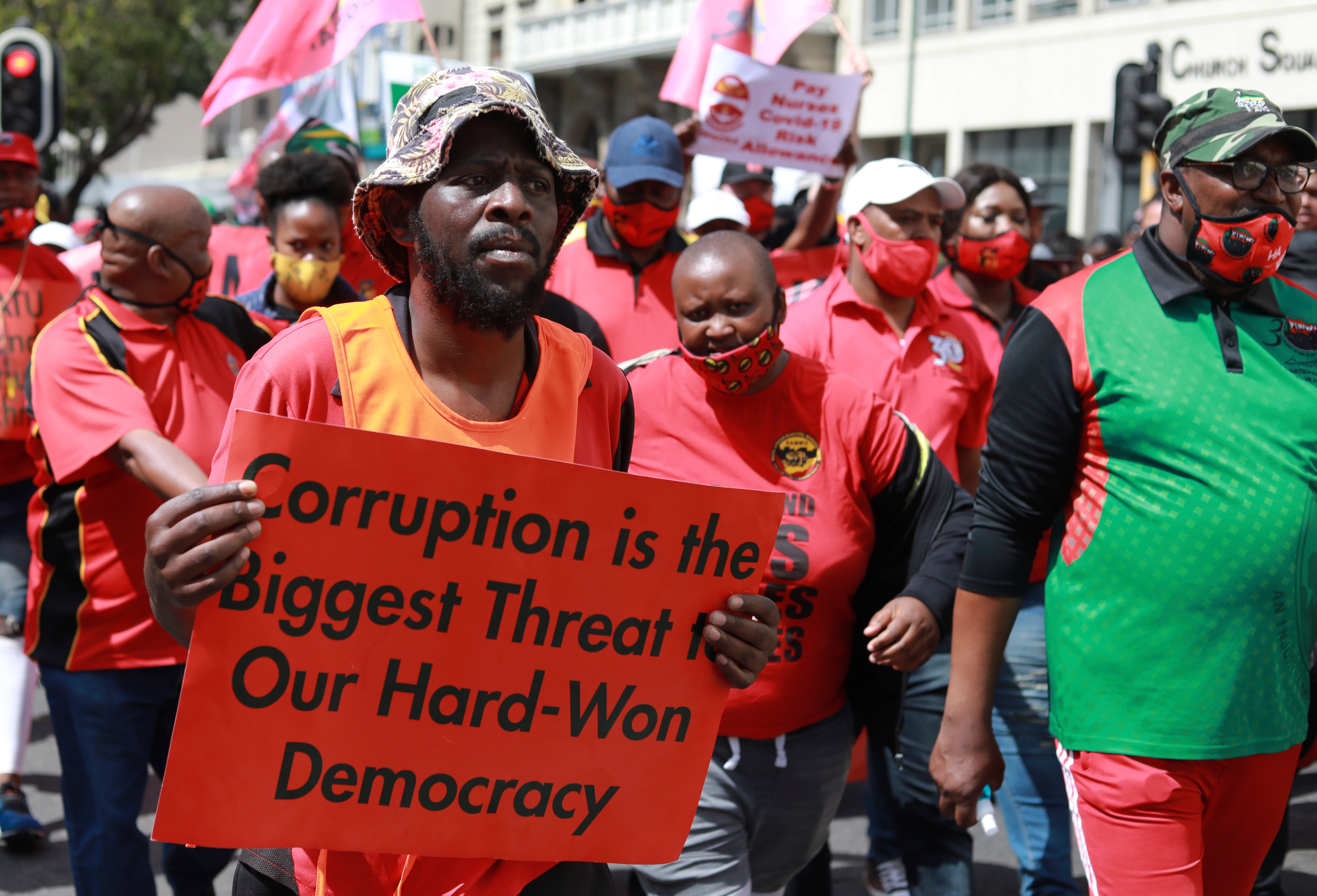South African unions stage national strike to protest corruption, job losses and cuts
The strike exceeded expectations, the country’s main labour group says

Your support helps us to tell the story
From reproductive rights to climate change to Big Tech, The Independent is on the ground when the story is developing. Whether it's investigating the financials of Elon Musk's pro-Trump PAC or producing our latest documentary, 'The A Word', which shines a light on the American women fighting for reproductive rights, we know how important it is to parse out the facts from the messaging.
At such a critical moment in US history, we need reporters on the ground. Your donation allows us to keep sending journalists to speak to both sides of the story.
The Independent is trusted by Americans across the entire political spectrum. And unlike many other quality news outlets, we choose not to lock Americans out of our reporting and analysis with paywalls. We believe quality journalism should be available to everyone, paid for by those who can afford it.
Your support makes all the difference.South African unions representing workers across a range of industries staged a one-day national strike, dealing a further blow to an economy battered by the coronavirus.
Wednesday’s protest was called by the Congress of South African Trade Unions (Cosatu), the country's largest labour group, to highlight grievances including job losses, an inadequate public transport system, corruption and state spending curbs. The country's other three main labour associations endorsed the decision to stop work. Small protests were staged in several towns.
"The strike was very well supported," Cosatu spokesperson Sizwe Pamla said by phone. "We are happy with the responses. It was beyond our expectations."
The Minerals Council South Africa, a lobby group for larger producers, said it was unaware of major disruptions, and only 6 per cent of businesses surveyed by the 10,000-member National Employers Association of South Africa (Neasa) said they were affected by the stay-away.
"The strike failed to gain any real traction in the private sector," Gerhard Papenfus, Neasa's chief executive officer, said by phone. "Employees realise they need to retain their jobs and they need to earn an income."
Africa's most-industrialised economy shed 2.2 million jobs in the second quarter after a five-week lockdown shuttered most businesses, with the central bank expecting it to contract 8.2 per cent this year.
The strike coincided with the start of a two-day cabinet meeting to discuss a revival plan for the economy. The government's priorities will include increasing infrastructure investment, promoting mass employment and clamping down on crime and corruption, Jackson Mthembu, the minister in the presidency, told reporters.
Outrage among workers who retained their jobs and face pressure to support those affected by the economic meltdown has been stoked by allegations that state contracts to provide protective equipment to tackle the coronavirus were tainted by corruption.
"Both public and private sectors have demonstrated unbelievable levels of grand-scale corruption without regard for the suffering of our people," Cosatu said in its strike memorandum. "This is a struggle against greed, parasitism and institutionalised profiteering at the expense of poor people and workers."
Unions representing civil servants are also up in arms over the government's plans to renege on an undertaking made in 2018 to grant its more than 1.2 million workers pay increases that would lump the country with 37.8bn rand ($2.3bn) of additional debt.
About a third of South Africa's annual 1.95 trillion-rand national budget is dedicated to salaries and freezing civil servants' pay is critical to the finance minister Tito Mboweni's plans to cut government spending by 230bn rand over the next two years.
Mr Mboweni's budgetary plans ran counter to measures announced by President Cyril Ramaphosa and agreed with business and labour groups to revive the economy, said Zingiswa Losi, Cosatu's president.
Washington Post





Join our commenting forum
Join thought-provoking conversations, follow other Independent readers and see their replies
Comments